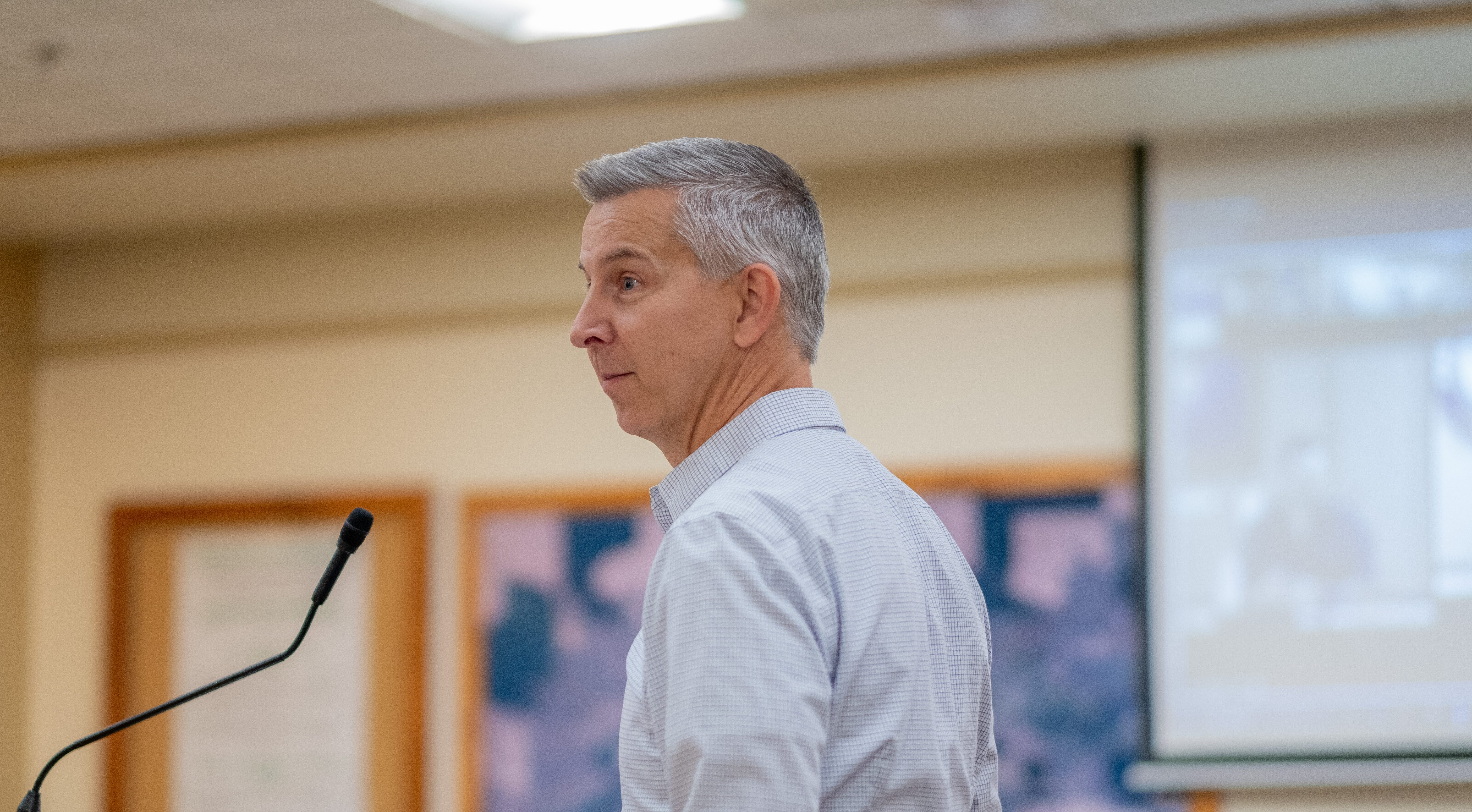Researchers study risk of COVID-19 in treated sewage
Published 6:00 am Saturday, April 25, 2020

- Ten anaerobic digesters are used to process Portland wastewater into bio-solids, which are then delivered to farms in Eastern Oregon as a nutrient-rich fertilizer. Based on earlier research focused on different strains of coronavirus, environmental regulators say the risk of exposure to COVID-19 in the sludge is likely low.
PORTLAND — Every day, trucks carrying tons of treated sewage from the city of Portland arrive at rural farms in Eastern Oregon where the material is spread as a nutrient-rich fertilizer on the region’s sprawling wheat fields and grass pastures.
Using municipal waste to grow heartier crops is nothing new in agriculture, but as the COVID-19 pandemic has left more than 2,000 Oregonians sickened and 78 dead as of April 21, communities are growing concerned about whether it may be a pathway for infection.
Trending
According to the Centers for Disease Control and Prevention, the novel coronavirus has been found in the feces of some patients. However, there is no evidence so far of transmission from sewer systems.
Scientists are just beginning to study whether the virus is present in sewage after undergoing anaerobic digestion — the process of turning raw waste into beneficial bio-solids. Based on past research focused on different strains of coronavirus, public health and environmental regulators believe the risk is low.
“I feel confident there is a very low risk for this to be a viable exposure pathway,” said Pat Heins, program coordinator for bio-solids and water reuse at the Oregon Department of Environmental Quality.
City to farm
DEQ permits more than 200 facilities statewide that produce bio-solids for farms and ranches, including the city of Portland at its Columbia Boulevard Wastewater Treatment Plant.
In 2018, the city processed 7,930 dry tons of bio-solids for land application, of which 5,792 tons were sent to Madison Ranches about 10 miles south of Hermiston, Eastern Oregon’s largest city. Madison Ranches spread the material over 1,822 acres of permanent dryland pasture.
Trending
The rest went to wheat farmers in nearby Sherman County. Another 1,206 dry tons of bio-solids was also sent to a Wasco County landfill.
Greg Charr, bio-solids program manager for the Portland Bureau of Environmental Services, described the process as a model for sustainability. Sewage comes into the treatment plant, where it is held in one of 10 anaerobic digesters for up to four weeks and heated to a minimum of 95 degrees Fahrenheit.
Microorganisms chew up and break down the sludge, reducing pathogens and making it less attractive for other disease-spreading vectors, such as insects, rodents and birds. The leftover material, defined as a Class B bio-solid, is a valuable soil amendment for raising crops and livestock.
“It improves your soil’s ability and structure to hold water and nutrients,” Charr said.
The city began partnering with Madison Ranches 30 years ago to apply bio-solids on pastureland. Oregon State University conducted a study in 2008 showing grass yields improved by 530% on fields treated with the material.
Jake Madison, president of the fourth-generation farm, said no employees have ever gotten sick from handling bio-solids.
“None of our employees have been sick, and we work with this stuff every day,” Madison said. “We haven’t seen any issues with it on our end.”
Study underway
But the COVID-19 outbreak is something entirely new. A study recently funded at the University of Arizona aims to determine if the strain of coronavirus that causes COVID-19 can survive in digested sewage, and if so, for how long.
Ian Pepper, an environmental microbiologist and director of the university’s Water and Energy Sustainable Technology Center, said they will be physically handling samples of the virus during lab tests, spiking sewage with it and digesting sewage.
“I know there is a lot of concern whether bio-solids could be a vehicle for transmitting the virus,” Pepper said. “We think it would be extremely unlikely, but you still have to do the research.”
Past research at the WEST Center has revealed that other strains of coronavirus die off rapidly in wastewater, with a 99.9% reduction after 2-3 days. That is far less time than the four weeks sewage is held in anaerobic digesters by the city of Portland.
Microbes feeding on the material also makes it unlikely the virus could survive, Pepper said.
“We don’t think the virus is a particularly hearty one,” he said.
Sally Brown, a research professor at the University of Washington in Seattle, is likewise skeptical about the presence of the coronavirus in treated bio-solids. COVID-19 is primarily a respiratory disease, she said, and any virus found in excrement must run a gauntlet of obstacles to actually infect someone — from the sewer lines to the digesters to the farm.
“There is no way a viable fraction of it is left by the time it comes out of the digester,” Brown said. “You’ve got all these different checkpoints where this thing dies.”
Between all those factors, Heins, with Oregon DEQ, said bio-solids are not considered a high priority. He said there are no plans to suspend permits or halt the program.
“The structure and the risks that we’ve identified, and the past information that we have from other coronaviruses, don’t indicate a high risk or a significant risk, for that matter,” Heins said. “We’re just in the initial preliminary stages of this. … We at the agency continue to follow and try to stay on top of that research as it comes out.”









